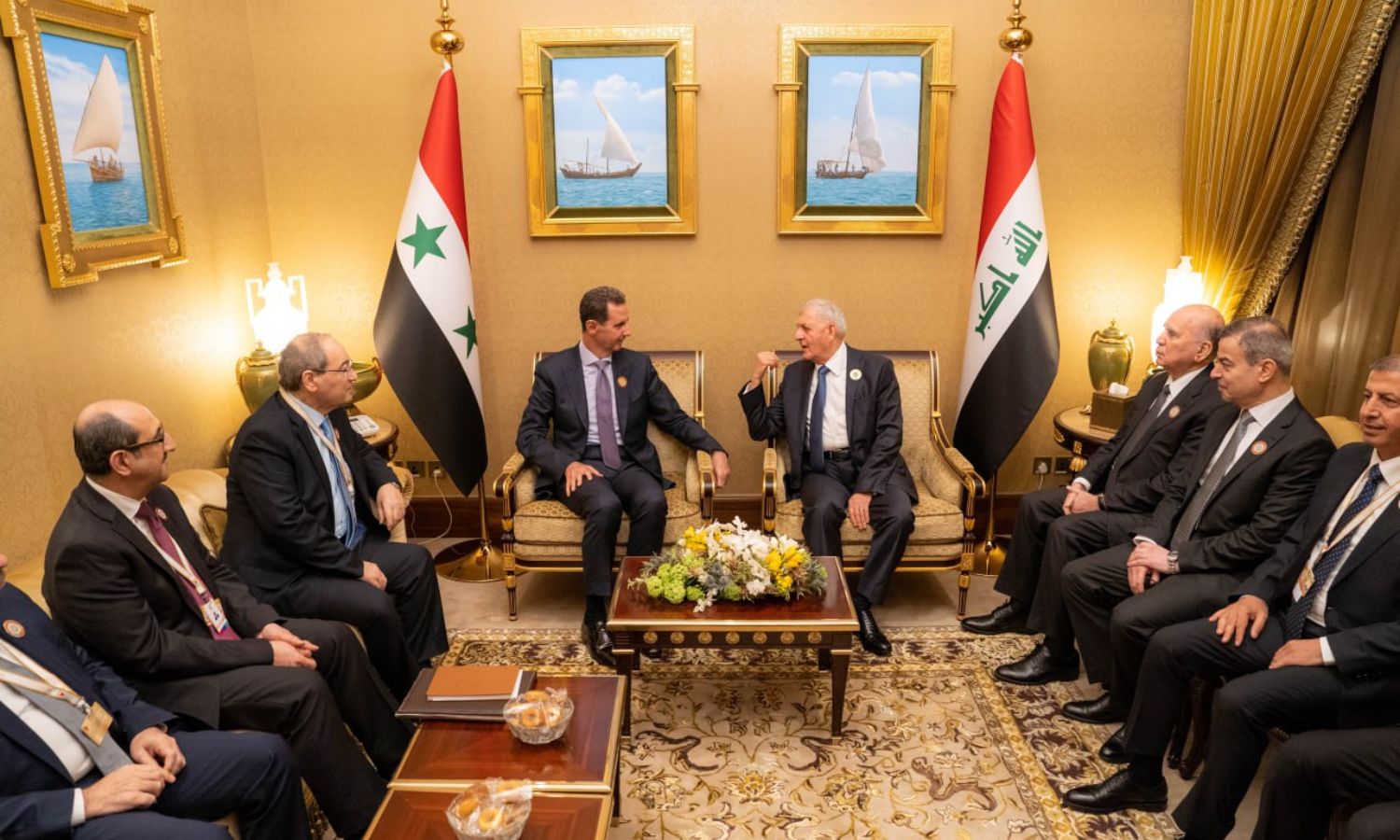During a series of meetings between officials from the Syrian regime and their Iraqi counterparts, discussions on joint cooperation, particularly in combating terrorism, were recurrent. This coincided with security movements by the regime in the Syrian Badia region.
State media reported that the discussions encompassed cooperation in counter-terrorism efforts, economic collaboration, and political coordination. The Iraqi president, in a statement quoted by the official Iraqi News Agency (INA), commended the multifaceted cooperation, particularly in counter-terrorism endeavours and bolstering border security. He emphasized Iraq’s commitment to fortifying security and stability in Syria.
In early May, Bashar al-Assad welcomed Faleh al-Fayyad, the commander of the pro-Iranian Iraqi Popular Mobilization Forces, in the Syrian capital.
Furthermore, on May 12, Syrian and Iraqi interior ministers, Mohammed Khaled al-Rahmoun and Abdul Amir al-Shammari formalized a memorandum of joint security cooperation between the two nations, as reported by the Iraqi Interior Ministry’s official website.
A salient aspect of convergence between Syria and Iraq presently lies in Iranian influence spanning the two neighbouring countries. This occurs against the backdrop of fluctuating tensions between Iran and the United States in the region. The U.S. maintains a presence on both sides of the Iraq-Syria border, amidst the proliferation of Islamic State cells in both nations.
Tehran’s backing of the Syrian regime, coupled with its extensive influence within the Iraqi government and factions aligned with the Iraqi military, underscores the complex dynamics shaping the region’s geopolitical landscape. These dynamics extend to factions operating along the Syrian-Iraqi border, where Iranian influence is particularly pronounced.
The regime is a partner for “counter-terrorism”
As political meetings convene between officials from the Syrian regime and their Iraqi counterparts, ostensibly to address the shared goal of combating terrorism, the Islamic State’s activities persist in both countries. While Iraq reports notable successes in neutralizing members of the organization, evidenced by continuous announcements, the Syrian regime faces ongoing challenges, evident in ambushes orchestrated by the Islamic State against its forces in the Syrian desert.
Political analyst Mustafa al-Nuaimi interprets the burgeoning rapport between the two sides as a strategic maneuver by the regime to position itself as a potential partner in counterterrorism endeavours. Nuaimi suggests that both parties leverage Iranian militias in their counterterrorism efforts.
According to Nuaimi, the regime aims to forge a collaborative approach with Iraq in tackling the Islamic State threat. This initiative serves dual purposes: to signal to the United States its role in counterterrorism, particularly amid speculations that the regime might pose a threat to the Syrian Democratic Forces (SDF) once coalition forces withdraw from Syria.
This article was translated and edited by The Syrian Observer. The Syrian Observer has not verified the content of this story. Responsibility for the information and views set out in this article lies entirely with the author.


